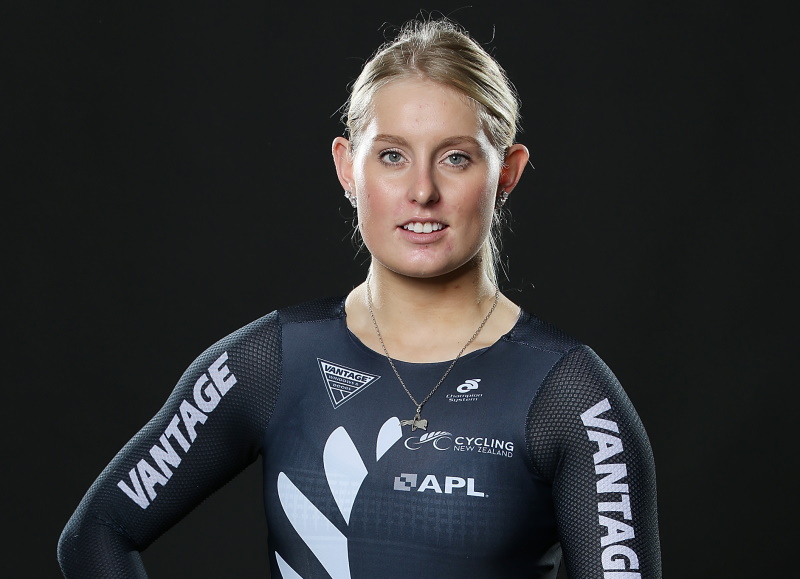
This story discusses mental health and suicide. A list of helplines is available at the bottom of the page.
More assertive steps should have been taken to assess Olivia Podmore when she expressed suicidal ideation, an inquest has heard.
Instead the elite cyclist, left vulnerable from bullying within Cycling New Zealand (CNZ) and seen as a whistleblower, was considered at low risk of suicide.
The Rio Olympian died by suspected suicide at the age of 24 in August 2021, at the end of the Tokyo Olympics, which she was not selected for.
Psychiatrist Dr Erik Monasterio told Podmore's inquest she was signalling distress over a period of time including discussing ways to take her own life from early 2021.
Monasterio, the expert witness at the inquest before Coroner Louella Dunn, said there was a duty of care to adequately assess Podmore or refer her to a psychiatrist after that, which none of the health practitioners treating her did.
"Given her known history of having being considered a whistleblower, given the stress in her relationship with the sporting bodies, and what seems to me to be a fairly pervasive pattern of fluctuating of but definite deterioration in mental state, more assertive steps should have been taken at that time."
Monasterio said suicidal ideation to deal with stress, especially at a young age, was not a normal response and should have been a warning flag - especially as it was a new response in January 2021.
The inquest earlier heard Podmore became the target of bullying and harassment from a coach and teammates after she inadvertently exposed an affair between the coach and athlete during a training camp in Bordeaux, ahead of the 2016 Rio Olympics.
By 2018, allegations of bullying within Cycling New Zealand surfaced in the media and lawyer Mike Heron began an investigation.
Monasterio said people labelled whistleblowers generally did not do well, let alone a person so young, because almost all whistleblowers get a hard time.
"You have to make sure that person is not doubly traumatised. This was a major event for a young person.
"Olivia found herself in the centre of an inquiry which left her feeling incredibly vulnerable and it would seem that within the time that the Heron inquiry and the findings of that were made public she started to evidence distress."
He said Podmore needed to feel reassurance from CNZ that she would be protected going forward as a basic duty of care.
Especially as her goal in life was to succeed in elite cycling at the world's pinnacle events, which made complaining to CNZ difficult.
"To complain against an agency upon which you're destiny resides is very compromising. It's like biting the hand that feeds you."
But he said she felt her trajectory in the cycling programme was negatively affected by her role in the Bordeaux incident.
Podmore herself said she suffered "mental torture" and after the Heron report exposed a litany of cultural and leadership failures as well as athlete welfare concerns, she was promoted to a level 1 carded athlete and back-paid.
But during the next 12 months she was dropped to a level 3 status, the lowest she had been in several years.
At the same time, specific, detailed psychological support appeared lacking, the inquest heard.
That was despite Heron writing a separate, confidential letter to then CNZ chief executive Andrew Matheson outlining issues that may "give rise to further action" including allegations Podmore was bullied by two of her teammates in July 2016.
However, Matheson earlier told the inquest in Hamilton he saw "no tangible value" in pursuing disciplinary action against those alleged to have harmed Podmore.
Of Matheson's final letter to Podmore to "draw a line" under the bullying, Monasterio said if a person was the recipient of bullying they would want a fair outcome and the question was whether Podmore considered the letter closing the case to be a fair outcome.
If she did not, she would have felt even more disempowered, he suggested.
In 2020, Podmore unsuccessfully appealed CNZ's decision not to nominate her for selection as a sprint cyclist to the Tokyo Olympics.
Two days before her death, she watched a teammate she could beat win a medal at the games and an endurance rider return a poor time in the sprint race.
Where to get help:
Need to Talk? Free call or text 1737 any time to speak to a trained counsellor, for any reason.
Lifeline: 0800 543 354 or text HELP to 4357
Suicide Crisis Helpline: 0508 828 865 / 0508 TAUTOKO (24/7). This is a service for people who may be thinking about suicide, or those who are concerned about family or friends.
Depression Helpline: 0800 111 757 (24/7) or text 4202
Samaritans: 0800 726 666 (24/7)
Youthline: 0800 376 633 (24/7) or free text 234 or email talk@youthline.co.nz
What's Up: free counselling for 5 to 19 years old, online chat 11am-10.30pm 7days/week or free phone 0800 WHATSUP / 0800 9428 787 11am-11pm
Asian Family Services: 0800 862 342 Monday to Friday 9am to 8pm or text 832 Monday to Friday 9am - 5pm. Languages spoken: Mandarin, Cantonese, Korean, Vietnamese, Thai, Japanese, Hindi, Gujarati, Marathi and English.
Rural Support Trust Helpline: 0800 787 254
Healthline: 0800 611 116
Rainbow Youth: (09) 376 4155
OUTLine: 0800 688 5463 (6pm-9pm)
If it is an emergency and you feel like you or someone else is at risk, call 111.













